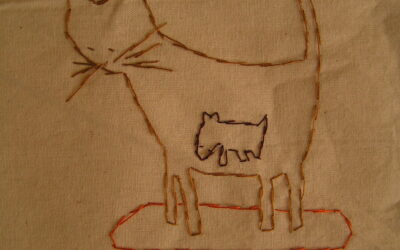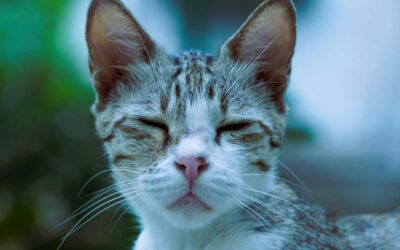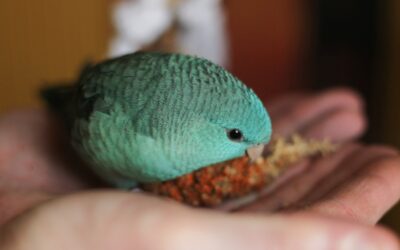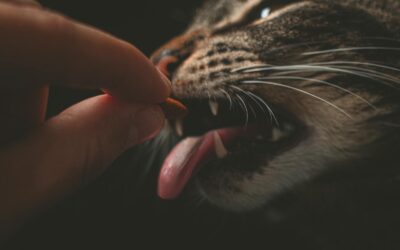Are chinchillas good pets?
Chinchillas are undeniably cute with their incredibly soft, luxurious fur and big round eyes. But are they good pets? If you’re considering adding one of these exotic animals to your home, there are a few key things to know. From their unique care requirements to their personalities, this guide will answer whether chinchillas are the right pet for you.
Whether you’re a first-time pet owner, a pet enthusiast, or someone intrigued by exotic animals, this blog provides insight into what life with a chinchilla is like. We’ll cover their behavior, care needs, costs, and more to help you make an informed decision.
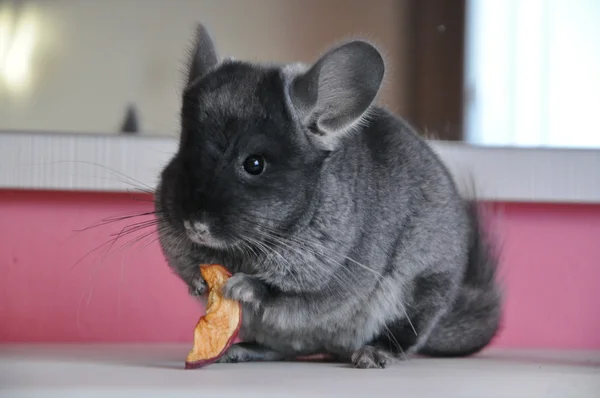
What Makes Pet Chinchillas Unique?
Chinchillas possess several distinctive qualities that set them apart as unique and special pets. Here are a few reasons why chinchillas make remarkable companions:
- Soft and Luxurious Chinchilla Fur: Chinchillas have some of the softest fur among all animals. Their dense coat, consisting of more than 50 hairs per follicle, gives them a plush and luxurious feel, making them delightful to touch and cuddle.
- Nighttime Activity: Chinchillas are crepuscular animals, meaning they are most active during dawn and dusk. This makes them a great choice for individuals who prefer a pet that is more active and playful during the evenings.
- Natural Agility: Chinchillas possess incredible jumping and climbing abilities. They enjoy exploring and navigating through tunnels and platforms, showcasing their natural agility and providing a visually entertaining experience for their owners.
- Bonding and Interaction: Chinchillas can form strong bonds with their owners through regular handling and gentle interactions. With patience and care, these intelligent animals can become affectionate and playful companions.
- Gentle Nature: Known for their peaceful temperament, chinchillas are generally gentle creatures. They rarely bite and are less likely to scratch compared to other small pets, making them suitable for families with children or individuals seeking a calm and low-stress pet.
- Long Lifespan: Chinchillas have a relatively long lifespan compared to other small mammals. With proper care and a healthy lifestyle, they can live for 10 to 20 years or even longer, providing years of companionship and joy.
These unique qualities make chinchillas an intriguing choice for pet lovers seeking a fascinating, low-maintenance yet engaging companion.
Are Chinchillas Quiet Animals?
One of the perks of chinchillas is that they are fairly quiet animals. They won’t bark or meow, making them ideal for people who live in apartments or prefer less noise at home. However, their nocturnal activity can mean the occasional sounds of chewing or running wheels late at night.
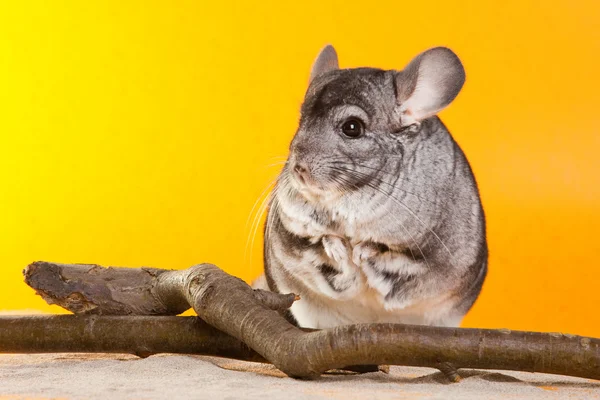
Are Chinchillas Good Pets?
Chinchillas can be wonderful pets for the right owner. However, they are not recommended as “easy pets” for someone seeking a low-maintenance companion. Here are some key factors to consider:
1. Chinchillas and Their Behaviors
Chinchillas possess a range of captivating behaviors that make them even more endearing as pets. Understanding their behaviors is key to providing them with a suitable environment and ensuring their well-being. Here are some intriguing aspects of chinchilla behavior:
- Dust Bathing: Chinchillas have a unique grooming routine that involves rolling in dust baths. This behavior helps them maintain a healthy coat by removing excess oils and keeping their fur clean and soft.
- Nocturnal Activity: Chinchillas are primarily nocturnal creatures, meaning they are most active during the night. They have a natural inclination to explore, play, and exercise during these hours.
- Chewing and Gnawing: Chinchillas have continuously growing teeth, and to keep them at a healthy length, they need to chew on suitable items. Providing chew toys and safe chewing options helps satisfy their natural instinct to gnaw and prevents dental problems.
- Vocalizations: Chinchillas communicate through various vocalizations, such as chirping, barking, and purring. These sounds can convey their emotions, signaling contentment, fear, or agitation.
- Jumping and Agility: Chinchillas are agile and acrobatic, known for their impressive jumping abilities. They can effortlessly leap and bounce, utilizing their powerful hind legs to explore their surroundings.
- Burrowing and Climbing: Chinchillas have an instinctual desire to burrow and climb. Providing them with suitable hiding spots, tunnels, and platforms allows them to engage in these natural behaviors, promoting their physical and mental well-being.
By understanding and accommodating these behaviors, chinchilla owners can create a stimulating and enriching environment where their pets can thrive and showcase their unique personalities.
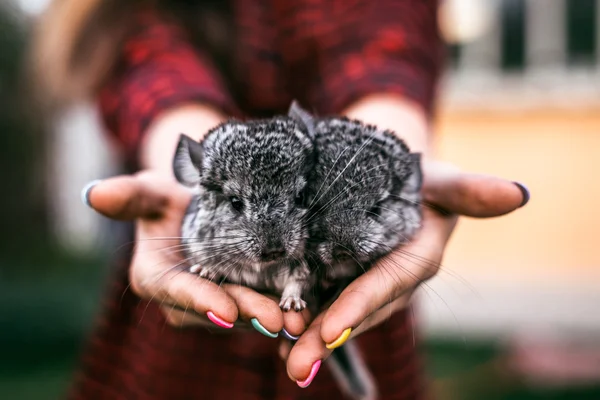
2. Care Requirements
Chinchillas require specialized care compared to other pets. Here are some basic needs for their proper care:
- Housing Chinillas: They need a spacious cage with multiple levels to jump and climb, mimicking their natural habitat. Avoid cedar shavings, as these can cause respiratory infections—opt for safe bedding materials like paper-based bedding instead.
- Diet: Do you know what chinchillas eat? A chinchilla’s diet primarily consists of chinchilla pellets and good-quality grass hay (like Timothy hay). These are essential for their digestive health. Fresh water in a chew-proof water bottle and occasional healthy treats are also important.
- Chew Toys and Accessories: Chinchillas have constantly growing teeth, requiring chew toys like willow balls, wooden parrot toys, or pumice stones (chinchilla block) to prevent dental problems.
- Dust Baths: Unlike other pets, Chinchillas are primarily nocturnal creatures due to their dense fur, which traps moisture and may lead to skin infections. Provide regular dust baths using special chinchilla dust to keep their fur clean and healthy.
- Temperature Control: Due to their dense fur, they thrive in colder temperatures and a fairly quiet area. Ensure their environment is free from loud noises and never allow them to face heat exposure.
3. Health Considerations
Before bringing a chinchilla into your home, it’s essential to consider their specific health needs and requirements. Here are some important factors to keep in mind:
- Specialized Diet: Chinchillas have a unique dietary requirement that includes a high-fiber, low-fat diet consisting mainly of hay and pellets. Their sensitive digestive system can be disrupted by foods that are high in sugar, fat, or moisture. It’s crucial to provide them with a proper diet to maintain their digestive health.
- Dental Care: Chinchillas have continuously growing teeth, so it’s crucial to provide them with appropriate chew toys and safe chewing options to prevent dental problems. Regular dental check-ups with a veterinarian who specializes in exotic pets are also essential to ensure their teeth are in good condition.
- Dust Bathing: Chinchillas have dense fur that requires regular dust bathing to keep it clean and prevent skin issues. Dust baths help remove excess oils and moisture from their fur. Provide a suitable dust bath container filled with specially formulated chinchilla dust for them to groom themselves.
- Temperature and Humidity: Chinchillas are sensitive to high temperatures and humidity. They thrive in cool and dry environments, with temperatures ideally kept between 60-70°F (15-21°C). It’s important to avoid exposing them to extreme heat and humidity, as it can lead to heatstroke and other health complications.
- Veterinary Care: Chinchillas require regular veterinary check-ups by an experienced exotic animal veterinarian. These check-ups help monitor their overall health, detect early signs of illness, and ensure they receive necessary vaccinations and parasite prevention treatments.
By considering these health considerations and providing appropriate care, you can help ensure the well-being and longevity of your chinchilla companion. Remember, the health and happiness of your chinchilla are of utmost importance for a fulfilling and enriching relationship.
Is More Than One Chinchilla Necessary?
Chinchillas are social animals and typically do better when kept in same-sex pairs or groups. However, it’s important to introduce them carefully, as not all chinchillas may get along instantly. Housing two or more chinchillas together can prevent loneliness and encourage playful interaction, but this also means a larger cage and additional care supplies.
That said, if you choose to have just one chinchilla, ensure you dedicate extra time to provide companionship.

Costs of Owning a Chinchilla
Before committing to a chinchilla, factor in initial and ongoing expenses that include:
- Initial Costs: A large cage, food bowls, water bottles, a solid running surface (avoid wire wheels), and a starter supply of dust and chinchilla pellets can add up quickly.
- Ongoing Costs: Monthly costs include food (good quality hay and pellets), dust, chew toys, and veterinary care.
Are Chinchillas Easy to Care For?
When given optimal care, chinchillas can be relatively easy to care for but require consistent effort to meet their needs. Unlike other pets, they need daily attention to ensure they stay healthy and happy.
Pros and Cons of Keeping Chinchillas as Pets
Pros:
- Great Pets for Quiet Homes: Chinchillas are ideal for those who prefer low-noise environments.
- Small Space Needs: While they require a large cage, they don’t take up as much space as larger animals.
- Long Lifespan: With proper care, adult chinchillas can live up to 15–20 years.
Cons:
- Sensitive Health Needs: They require an exotic vet and careful temperature control.
- Not Always Hands-On: While gentle handling can build trust, they’re not as physically affectionate as other pets.
- Costly Maintenance: Between their equipment, food, and health care, taking care of chinchillas requires a financial commitment.
Who Should Get a Chinchilla?
If you’re an experienced pet owner or an animal enthusiast willing to meet a chinchilla’s complex needs, a chinchilla might just be the perfect exotic pet for you. They’re suited to someone patient and interested in providing specialized care, such as managing their diet and offering a stimulating living environment.
However, for young children or those seeking a pet that enjoys frequent cuddling, chinchillas may not be the best choice.

Kates K9 Pet Care provides small pet care services. Contact us today!
Ready to Welcome a Chinchilla Into Your Home?
Chinchillas are great pets for those ready to commit to their specialized care. They’re not low-maintenance animals, but their unique behaviors and quiet demeanor make them rewarding companions for the right owner.
If you’re considering adding a chinchilla to your family, remember to plan for a spacious cage, regular dust baths, and the company they’ll need to stay happy. Research exotic vets in your area and stock up on high-quality chinchilla pellets and hay to ensure your new pet thrives.
Whether you choose one chinchilla or decide on same-sex pairs, the joy they bring as exotic, gentle creatures is worth every effort to provide optimal care.

